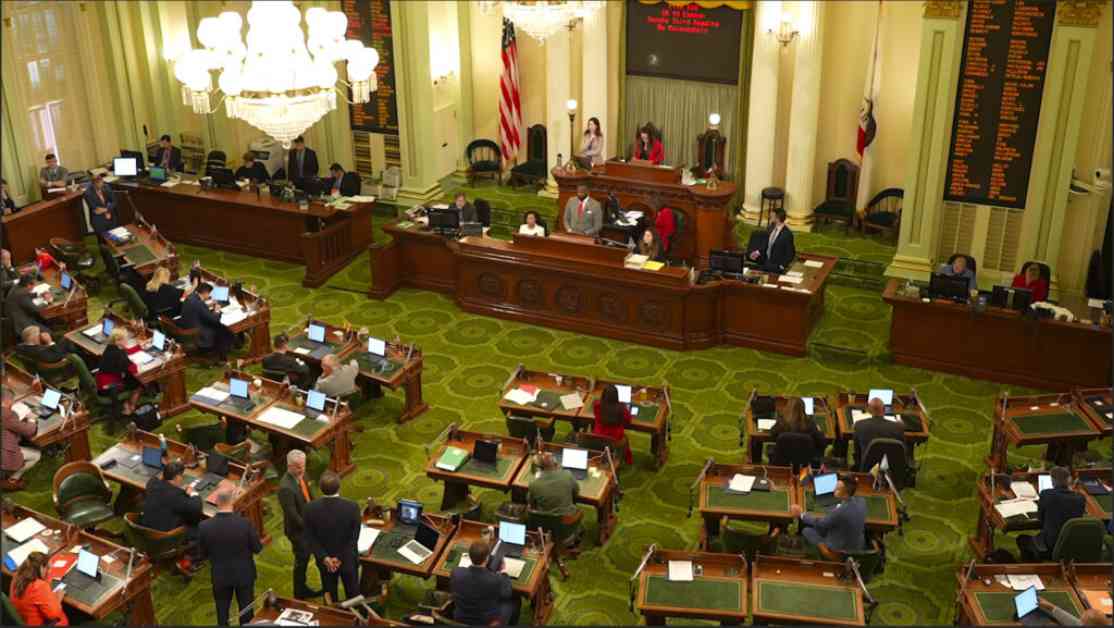Efforts to Eliminate Teacher Assessment Halted Due to Pressure from Education Advocates
A controversial bill that would have eliminated teaching performance assessments in California has been met with significant pushback from education advocacy groups, leading to a dramatic revision of the proposed legislation. Senate Bill 1263, sponsored by the California Teachers Association (CTA), initially sought to abolish the requirement for teacher candidates to undergo rigorous assessments that include video clips of classroom instruction, lesson plans, student work, and written reflections on their teaching practice.
However, in response to mounting pressure from various stakeholders, the bill was amended in mid-June to retain the teaching performance assessments. The revised version of the bill now includes a provision for the California Commission on Teacher Credentialing to convene a working group comprised of teachers, college education faculty, and performance assessment experts. This group will review the existing assessments and recommend changes to improve their effectiveness.
If passed, the revised bill would mandate that the commission approve the recommendations put forth by the work group by July 1, 2025, and implement them within three years from that date. Additionally, the commission would be required to provide annual reports to the Legislature regarding the progress and outcomes of the assessment review process.
Leslie Littman, Vice President of the CTA, expressed disappointment at the decision to retain the assessments but acknowledged that the establishment of a work group represents a positive step towards addressing concerns raised by union members. She noted that without the amendments, the bill may have faced challenges in gaining approval from the Legislature.
The Value of Teacher Performance Assessments
While some teachers have criticized the teaching performance assessments as being time-consuming and anxiety-inducing, proponents of the assessments argue that they play a crucial role in evaluating teacher preparation programs and ensuring that new teachers are adequately equipped to excel in the classroom. Marshall Tuck, CEO of EdVoice, an education advocacy organization, emphasized the importance of ensuring that teachers are well-prepared to effectively educate students, citing the assessments as a valuable tool in achieving this goal.
The debate over the necessity of teacher performance assessments intensified when the original version of Senate Bill 1263 proposed eliminating a test that evaluates candidates’ ability to teach reading. This move drew opposition from various stakeholders, including the Commission on Teacher Credentialing, leading to a reassessment of the bill’s provisions.
As the legislation progressed to the Assembly, Education Committee Chair Al Muratsuchi began engaging with stakeholders to discuss potential revisions to the bill. Education advocates made their voices heard through public hearings, direct outreach to legislators, and collaborative efforts to oppose the proposed changes. Ultimately, the bill underwent significant modifications in response to the feedback and concerns raised by education advocacy groups.
A Compromise for Progress
The revised version of Senate Bill 1263 reflects a compromise that emerged from negotiations between legislators, education advocates, and the Commission on Teacher Credentialing. The bill now includes provisions for increased oversight of teaching performance assessments, as well as measures to support teaching preparation programs with low passing rates on the assessments.
The proposed legislation also emphasizes the importance of maintaining a secondary passing standard for the assessments, taking into account additional evidence of a candidate’s performance. These changes aim to streamline and improve the administration and scoring of the assessments, ensuring that they provide a constructive experience for candidates without disproportionately impacting candidates of color.
The financial implications of the revised bill include an annual cost of $598,000, with $145,000 allocated for start-up expenses. Despite the financial investment required, proponents of the bill argue that the benefits of retaining and enhancing the teaching performance assessments outweigh the costs.
Looking Ahead
While the revised bill has garnered support from key stakeholders, including the Commission on Teacher Credentialing and education advocacy groups, the issue of teacher assessment is likely to resurface in the future. The establishment of a work group to review and recommend changes to the assessments signals a commitment to ongoing improvement and accountability within the teaching profession.
As the debate around teacher assessment continues, it remains essential for policymakers, educators, and advocacy groups to collaborate effectively to ensure that assessments align with the evolving needs of teacher candidates and the students they serve. The revised bill represents a step towards enhancing the quality and relevance of teacher preparation programs in California, with the potential to shape the future of education in the state.




















